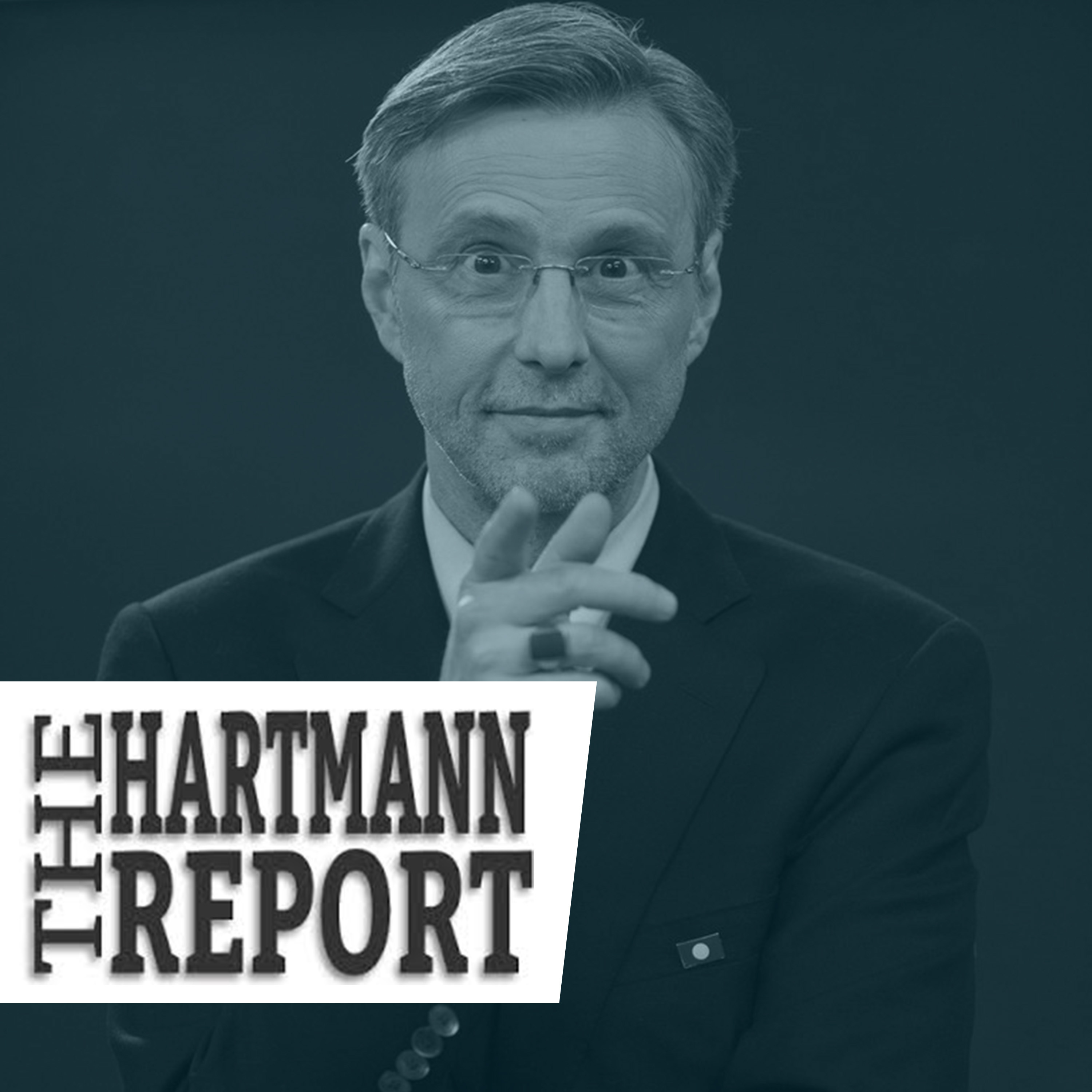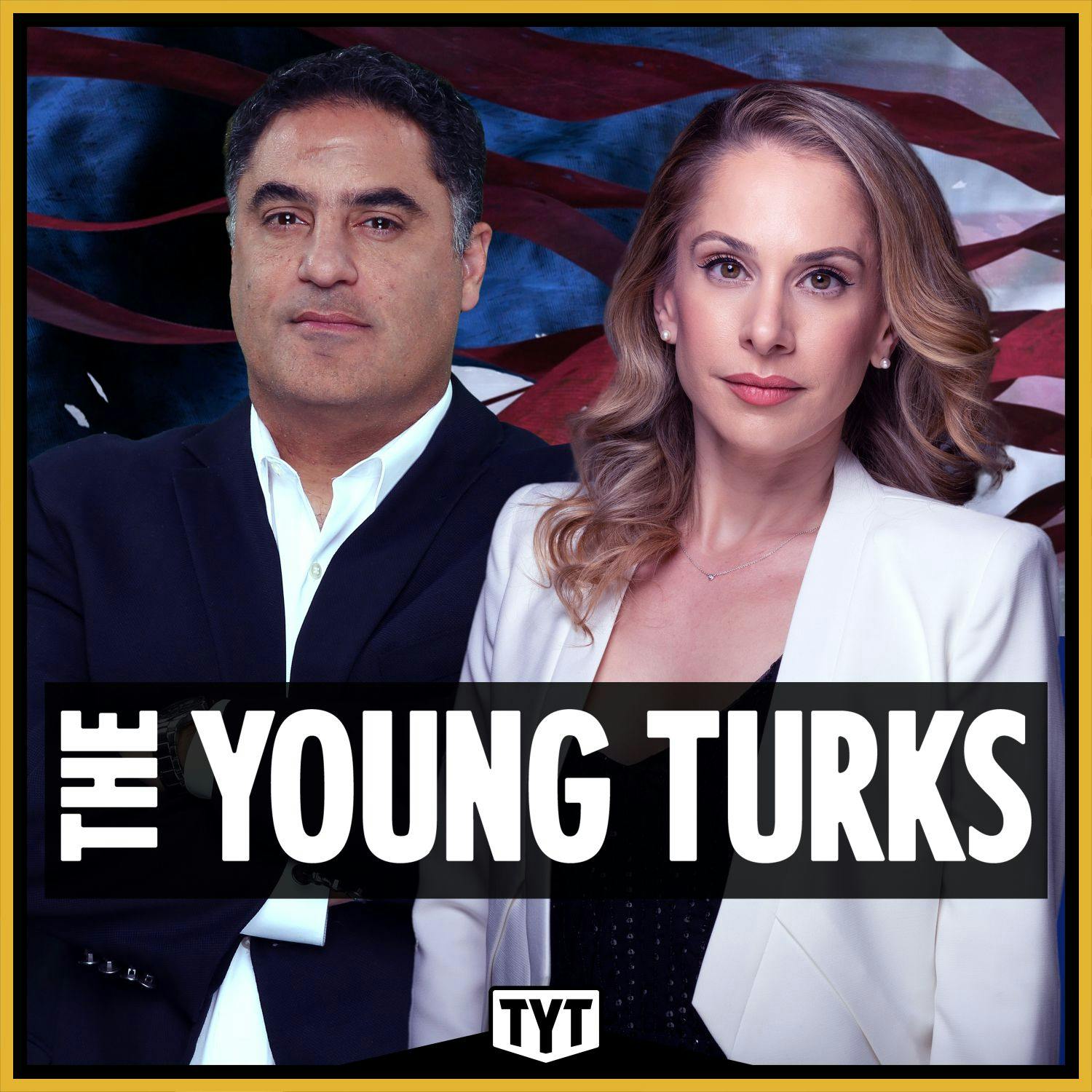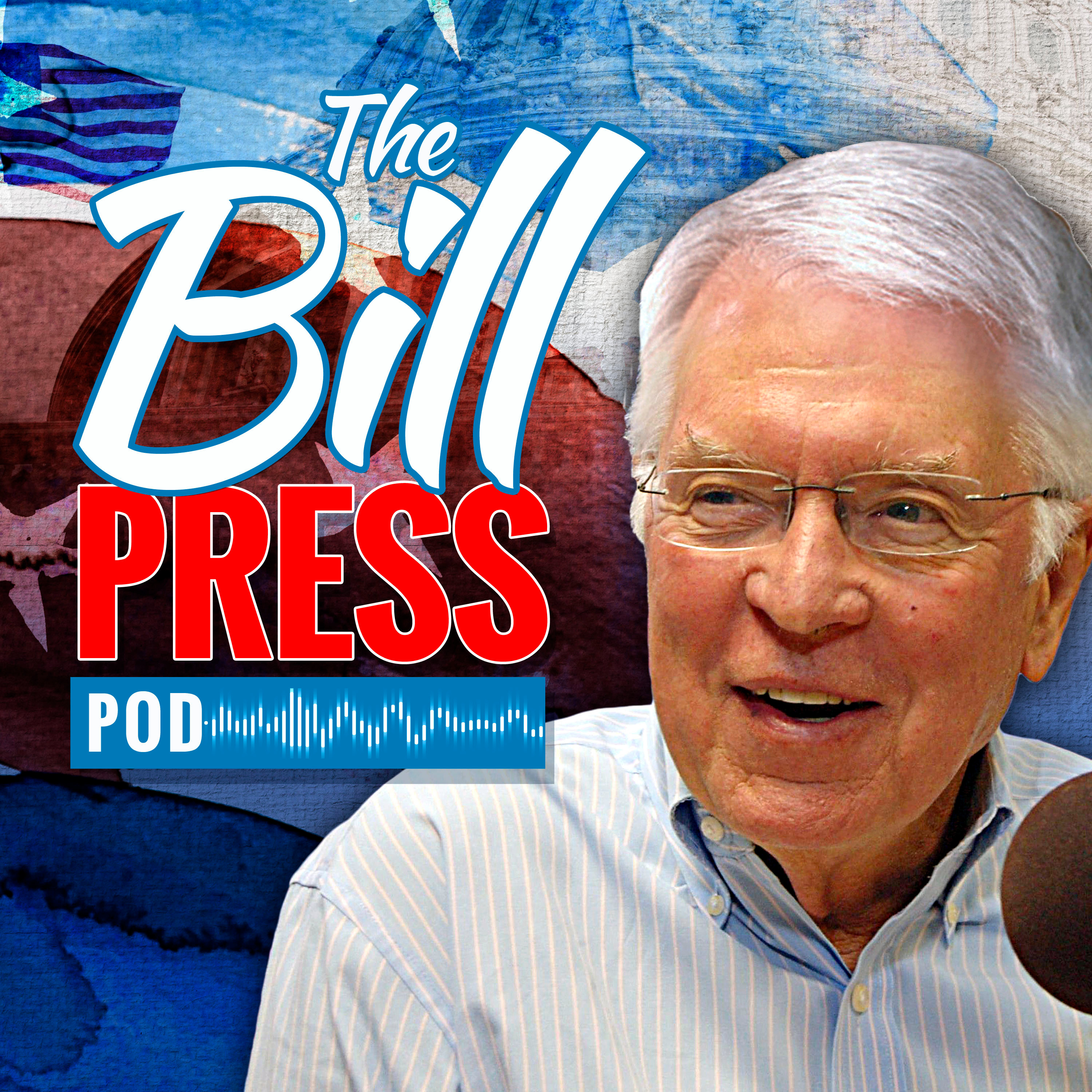
The Darrell McClain show
Independent media that won't reinforce tribalism. We have one Planet; nobody's leaving so let’s reason together!! Darrell McClain is a Military veteran with an abnormal interest in politics, economics, religion, philosophy, science, and literature. He's the author of Faith and the Ballot: A Christian's Guide to Voting, Unity, and Witness in Divided Times. He was born and raised in Jacksonville FL, and went to Edward H white High School,l where he wrestled under Coach Jermy Smith and The Late Brian Gilbert. He was a team wrestling captain, District champion, and an NHSCA All-American in freestyle Wrestling. He received a wrestling scholarship from Waldorf University in Forest City, Iowa. After a short period, he decided he no longer wanted to cut weight, effectively ending his college wrestling journey. Darrell McClain is an Ordained Pastor under the Universal Life Church and is still in good standing as well as a Minister for the American Marrige Ministries . He's a Believer in The Doctrines of Grace, Also Known as Calvinism. He joined the United States Navy in 2008 and was A Master at Arms (military police officer) He was awarded several awards while on active duty, including an expeditionary combat medal, a Global War on Terror medal, a National Defense Medal, a Korean Defense Medal, and multiple Navy achievement medals. While In the Navy, he was also the assistant wrestling coach at Robert E Lee High School. He's a Black Belt in Brazilian Jiu-Jitsu under 6th-degree black belt Gustavo Machado, Darrell Trains At Gustavo Machado Norfolk under the 4th-degree black belt, and Former Marine Professor Mark Sausser. He went to school for psychology at American Military University and for criminal justice at ECPI University.
The Darrell McClain show
The Big, Beautiful Bill: How Republicans and Democrats Fought Over the Nation's Most Vulnerable
A pivotal moment unfolded on the Senate floor as Vice President Vance cast the tie-breaking vote on what President Trump calls his "big, beautiful bill." This watershed legislation extends the Trump tax cuts, strengthens border security, and eliminates taxes on tips and overtime - but comes at a staggering cost that will reshape American society for years to come.
At the heart of this drama stands Alaska Senator Lisa Murkowski, who secured the bill's passage after negotiating special carve-outs for her state. Unlike John McCain's historic 2017 vote that saved the Affordable Care Act, Murkowski aligned with her party despite acknowledging the legislation's profound flaws. The consequences are severe: approximately 17 million Americans will lose healthcare access, 3 million will lose food assistance, and 18 million children will lose access to school meals - all while adding nearly $4 trillion to the national debt and providing substantial tax breaks to the wealthiest Americans.
The political fallout extends beyond Capitol Hill to a fascinating power struggle between President Trump and tech billionaire Elon Musk. Once close allies with Musk serving as head of the Department of Government Efficiency (DOGE), their relationship has dramatically deteriorated over this legislation. Musk condemned the bill as "utterly insane" and "political suicide for the GOP," vowing to fund primary challengers against supporting Republicans. Trump responded by threatening to review government contracts with Musk's companies and even making cryptic comments about the South African-born CEO's immigration status.
This episode provides crucial context for understanding how corporate America is retreating from political activism after years of embracing causes like Pride Month and DEI initiatives. We explore the cold calculation behind business political stances and why nearly 40% of companies have scaled back their social advocacy as consumer sentiments shift.
Join us for this deep dive into American politics where power, money, and principles collide - revealing who really benefits when legislation redistributes wealth and resources in ways that will affect generations to come.
The dramatic moment of Vice President Vance breaking a tie vote. The Vice President votes in the affirmative. The bill as amended is passed In a major win for President Trump, the Senate narrowly passing what he calls his big, beautiful bill, which extends the Trump tax cuts, increases border security and eliminates taxes on tips in overtime. As President Trump would say, promises made, promises kept, but three Republicans and every Democrat voting no Republicans passed the biggest tax breaks for billionaires ever seen. Ultimately, it came down to Alaska Republican Lisa Murkowski, who negotiated a special carve-out for Alaska to soften the blow of the changes to Medicaid drawing the ire of Kentucky's Rand Paul, who voted no.
Speaker 1:They chose to add more pork and subsidies for Alaska. To secure that, we pressed Murkowski. Senator Paul said that your vote was a bailout for Alaska at the expense of the rest of the country. That's what Senator Paul said. Senator, senator Paulson.
Speaker 3:My response is I have an obligation to the people of the state of Alaska and I live up to that every single day.
Speaker 1:Now the bill goes back to the House. President Trump optimistic Actually I think it will be easier in the House than it was in the Senate and responding to new criticism of the bill from Elon Musk, who says it's full of quote insane spending, the president posting without subsidies. Elon would probably have to close up shop and head back home to South Africa. Doge is going to look at Musk and if Doge looks at Musk, we're going to save a fortune, while Speaker Johnson insisting he can get the bill through the House again despite a razor-thin Republican majority. A lot of work ahead, but that's the job, so we'll get done.
Speaker 2:Welcome to the Derral McLean Jerome McClain independent media that won't lead to tribalism. We have one planet, nobody is leaving, and let us reason together. We have the amazing opportunity to be discussing with each other this caving of Lisa Murkowski, where she has cemented her legacy. We'll be doing this gladly. Let's get into it. So the moderate Republican bemoaned her hard decision, but when you really get into the analysis, she took the easy way out. After voting in favor of the single most inhumane piece of legislation in modern American history a budget that is reported to strip away health care for 17 million Americans. A bill that takes food assistance away from 3 million Americans, eliminates school meals access for more than 18 million kids and adds nearly $4 trillion to the national debts, sends electricity costs surging and sustainability, raises health care premiums for older adults. On the Affordable Care Act All the fun the tax cuts for the wealthiest Americans Senator Murkowski released a statement that read in part let's not kid ourselves, this has been an awful process, a frantic rush to meet an artificial deadline that has tested every limit of an institution. While we worked to improve the present bill for Alaska, it is not good enough for the rest of our nation, and we all know it. My sincere hope is that this is not the final project. This bill needs more work across chambers and it is not ready for the president to desk. We need to work together to get this right. As for Murkowski's hope, this is not the final product he's concerned.
Speaker 2:Perhaps she was unaware, but this was the vote. This wasn't a committee markup hearing. She voted on the final passage of the bill and she voted in favor. Is there a chance that the House makes changes and the bill comes back to the Senate? Sure, but as far as she's concerned, she gave her final stamp of approval to this bill in its current form and I'm not sure whether she's pretending that this was some preliminary vote out of ignorance or deception. But she doesn't get to lament the passage of a bill that she literally voted to pass. If she didn't like it and I hope you're sitting down for this if she didn't like it, she shouldn't have voted for it. But she did, and she rationalizes her decision by offering a few examples of how she improved the present bill for Alaska. Examples of how she improved the present bill for Alaska. It's true that she was able to secure some tribal exemptions on cuts to food assistance, a tax break for the fishing industry and $50 billion to offset hospital closures, which, frankly, do nothing, in the face of over a trillion dollars in health care cuts contained within the same bill. How will those crumbs justify trading away Americans' health care, food assistance, energy costs and a deficit is beyond me. But I suppose she delivers some pride, knowing that she gets to pretend that she delivered to the state of Alaska, that she delivered to the state of Alaska. Something tells me that she could comfort the 40,000 Alaskans who will lose their health care as a result of this bill's package.
Speaker 2:Now let's flash back to July 2017. John McCain was in very much the same position as Liseka Murkowski found herself today. He would have been deciding vote to repeal the Affordable Care Act, a decision that would have then kicked 30 million Americans off of their health care, no dissimilar to how nearly 20 million will lose Medicaid coverage as a result of the current bill. The current president was the president then, and President Trump pressured McCain, republicans pressured McCain, and when it came time to the vote, we all remember what happened. Mccain was capable of putting country over party in that moment. I don't think Mitch McConnell's Republican Senate conference was, on any planet less partisan than the country is today, than the Senate's conference is. And yet, even then, mccain was able to consider the impacts on millions upon millions of Americans. This is not to lionize John McCain, but I can certainly acknowledge that he showed heroism in that moment.
Speaker 2:And yet, when Lisa Murkowski had the opportunity to do the same thing, to cement her place in the history books as someone who could preserve health care for tens of millions and make sure that millions of children don't go to bed hungry, she allowed herself to be bought out with a few comical carve-outs. A wailing captain taps the deduction In a party that's already hurting for heroes. This represents a new low for the Grand Ole Party. Lincoln's party once fought to free the slaves, now reduced to screwing over the nation's poorest and the most vulnerable. In order to heap a tax cut on some of the wealthiest people who have ever walked the face of the earth. Who have ever walked the face of the earth, lisa Murkowski's cast the deciding vote to quantify the largest transfer of wealth from the poor to the rich in American history. Just to give you the number, this will save the top 1% $40,000 a year, as if it's not already obvious.
Speaker 2:No, I'm not sympathetic to Lisa Murkowski's plight. I don't emphasize when she laments the difficulty of her vote. What she did was not difficult. What she did was easy. Caving to the president of your own party is easy. Caving to Trump isn't courageous. It's not hard. You don't get credit for doing the hard thing when you didn't actually do the hard thing. If Murkowski wants sympathy, she should try to do something to actually earn it.
Speaker 3:Representative Don Bacon, republican from Nebraska, officially announced on Monday that he would not seek re-election in 2026, opening up what will likely be a competitive race for Nebraska's second congressional district. After consultation with my family and much prayer, I have decided not to seek re-election in 2026 and will fulfill my term in the 119th Congress through January 2nd 2027, bacon said in a statement. After three decades in the Air Force and now going on one decade in Congress, I look forward to coming home in the evenings and being with my wife and seeing more of our adult children and eight grandchildren, who all live near my home. I have been married for 41 years and I would like to dedicate more time to my family, my church and the Omaha community. He continued. I also want to continue advocating for a strong national security strategy and a strong alliance system with countries that share our love of democracy, free markets and the rule of law. The announcement comes days after a source familiar confirmed to the Hill that Bacon would not seek re-election next year. Bacon's decision to retire creates an open seat in one of the most competitive congressional districts in the country. Nebraska's second congressional district, which includes Omaha, was won by former Vice President Harris in the 2024 election and presents an opportunity for Democrats to pick up the blue dot District Bacon has held since 2016.
Speaker 3:The writing has been on the wall for months. Nebraskans are tired of the false promises that Republicans are trying to sell and they want real results, said Madison Andrus, a spokesperson for the Democratic Congressional Campaign Committee. Don Bacon's decision to not seek re-election in 2026 is the latest vote of no confidence for House Republicans and their electoral prospects. Next November, nebraskans are going to elect a Democrat who will actually deliver for them, the House Republican campaign arm emphasized. They continue to feel confident that they will maintain their hold on Bacon's seat. Don Bacon has served our country with honor after nearly 30 years in uniform and nearly a decade in Congress. Thanks to his steadfast commitment to duty and principled leadership, both Nebraska and our nation are stronger today, said Zach Bannon, a spokesperson at the National Republican Congressional Committee. As we look ahead, Republicans are confident in keeping Nebraska's second district red as we maintain and expand our majority in the House.
Speaker 1:He added.
Speaker 2:The public and messy feud between President Trump and tech billionaire Elon Musk was reunited this week over the president's big, beautiful bill. As Congress works to get the massive package to Trump's desk by July the 4th July, the 4th Musk on Monday said he would back primary challenges against any Republican who supports Trump's mega bill and promised to donate to lawmakers who have drowned the administration's ire, like Rep Thomas Massey, the Republican from Kentucky. Trump then threatened to cut the government contract for Musk's companies and left open the possibility of actually deporting the South African CEO. Trump and Musk both had signaled that they were ready to move on from their bitter fight nearly a month ago, but the president's mega bill that Musk has called a political suicide for the Republican Party has brought the two men back to sniping. I think Washington is confused by the on and off again relationship between Trump and Musk. It looked like they had patched things up around a month ago, said Republican strategist Ron Bojean, adding that the tech billionaire's posts on the social media platform X, which Musk owns, came out of nowhere. For most people out there, it seemed like he was looking to bury the hatchet in recent weeks.
Speaker 2:Trump on Tuesday shrugged off concerns that the GOP could be swayed by Musk's mega bills criticism, but he doubled down on his suggestions that the federal government take a look at contracts Musk companies have. Musk and his businesses have received at least $38 billion in government contract loans, subsidies and tax credits over the years, according to a February Washington Post analysis. No, I don't think so. I think what's going to happen is Doge is going to look at Musk, and if Doge looks at Musk, we're going to save a fortune, trump said during a visit to a migrant detention facility in Florida, referring to the Department of Government Efficiency. I don't think he should be playing that game with me. Government efficiency, I don't think he should be playing that game with me. It's a sharp change in tone from the president, who had previously said he thinks he could make amends with Musk after a nasty disagreement last month. Asked on Tuesday what happened to Musk, trump replied nothing. He's upset that he's losing his EV mandates and he's upset he's very upset about things, but he could lose a lot more than that. I can tell you right now Elon can lose a lot more than that, he said, arguing that Musk's criticism of the bill was over a key provision that takes away tax credits for electric vehicles that benefited his company. The president also signaled he would consider deporting the South African born US citizen whom he had elevated to the lead, the cost-cutting Doge, until late May. I don't know. I think we'll have to look. We might have to put Doge on Elon. You know what Doge is? It's the monster that might have to go back and eat Elon. Wouldn't that be terrible? Trump said the president had praised the massive cuts and sweeping changes, the federal government under Doge, despite pushback over the job losses and several disruptions, and he gifted Musk a gold key to the White House and made his recognition of the billionaire's work.
Speaker 2:But now Musk is arguing that Trump's ambitions tax spending bill and spending package undermines Doge's efforts to rein in spending. As senators squabbled over the bill past week, musk blasted spending packages as utterly insane and political suicide for the GOP One. On a Monday he renewed his calls for a new political party and he lamented estimates for how much the bill would raise in the debt ceiling. Musk in his unique is that he has enough money to probably actually impact a two-party system, said a former Trump campaign official. Now Republicans obviously face challenges in their ability to govern, and so do Democrats, but right now, all Trump wants is a bill with his name on it and that he thinks is a good bill. A lot of Republicans in Congress know this isn't a good bill, but fever and fear is a motivator. The former campaign official said we're a two-party country, pure and simple. Musk is probably the only person that could change that, given his money, but he'd have to find unique, credible candidates to attract disillusioned voters. Who thus far has leaned Trump. Now, of course, we already reported the Senate version of the bill nearly passed earlier Tuesday, and it will increase the deficit by nearly $3.3 trillion between 2025 and 2034, roughly $1 trillion more than the House passed version, according to the nonpartisan Congressional Budget Office.
Speaker 2:Every member of Congress who campaigned on reducing government spending and then immediately voted for the biggest debt increase in history should hang their head in shame, must run on eggs and they will lose their primary next year. If it's the last thing I do on this earth, the promise to back primary challengers against Republicans who support the mega bill comes after Musk, the rural's richest man, with a staggering $397 billion in net worth, according to Forbes single plans to step back from political spending after injecting hundreds of millions into a 2024 election, he could absolutely become a thorn in the side of the Republican Party by funding primary challengers. That would cause some headaches, no questions about it, bojean said. But Trump hosed most of the cards, bojean said, pointing at Trump's comments on the possibility of deportation and his authority over contracts that Musk and his companies touch. I don't think any candidate wants to have the world's richest man opened up his war chest against him, but I think most members of Congress would rather have Trump's endorsement than Musk's millions, said the GLP strategist Alex Connett, said the GOP strategist Alex Connett.
Speaker 2:One source who worked in the Trump's first administration describes the situation with Musk as not overly concerning, given the support the president has from GOP lawmakers. The White House doesn't love the renewed back and forth, but no one sees this as a major political threat. It looks more like a flare-up than a serious inflection point. The source said this is Trump's party. The idea that a rank-and-file Republican would suddenly abandon him because of a feud with Elon doesn't hold water. Of course, musk spent at least $250 million through the American PAC on Trump's election. During his tenure with Doge he kept an office at the White House complex, slept over in the Lincoln bedroom and touted that he and Trump were good friends. Trump also consistently defended Musk while he faced backlash over work to make cuts on federal spending and Tesla's were vandalized around the country. But when asked about the reign of the few, the White House argued the president is saving money for taxpayers with his policies. Many presidents have promised but none other than President Trump has delivered to actually make government more efficient and rot out waste, fraud and abuse in Washington, and that mission is moving full steam ahead. White House spokesman Harrison Fields said in an email statement Under the president's leadership, every agency and department is executing this mission seamlessly and, as a result, has yielded more than $170 billion in savings for the American people.
Speaker 2:The public nature of Trump and Musk spent last month and renewed this week is one of the most remarkable parts of their friends turned foes saga. These are not two men who quietly settle their differences in the background. Their content is to ball roll out in public, said Conant. Musk wouldn't be the first figure in Trump's orbit. Figure in Trump's orbit he elevated to a position of power, only to fire and then fight with the content noted, pointing to Trump's free relationship with his first term vice president, mike Pence. Anybody who's paid attention to Trump over the last 10 years should not be surprised that he's not going to be backing down from a fight with Elon Musk.
Speaker 2:Years ago, companies practically tripped all over each other to show support for Pride Month, black Lives Matter and other political clauses. Now businesses increasingly want something different. They actually want nothing to do with politics. Elon Musk left the government after his company's fortunes plummeted. Target, meta and other reversed the DEI policies. Nearly 40% of companies have scaled back support for Pride Month, according to Axios. What do companies get involved in politics have to do? Why do companies get involved in politics have to do? Why do companies get involved in politics to begin with? In most cases, people who run them believe it's better for their bottom line. Only rarely do they do it solely because they believe in the cause.
Speaker 2:Three forces that shape the decisions to take political stances are first, companies often follow other institutions. In 2015, the Supreme Court legalized same-sex marriage nationwide and the president at that time backed the ruling. These events signaled to businesses that gay rights causes had become mainstream and many responded by supporting Pride Month. Second, companies face internal pressure. In 2022, workers at Disney walked out over legislation that Florida that restricted discussions of gender and sexuality in schools. Disney subsequently fought for months with the state's government, particularly Governor Ron DeSantis, over LGBTQ rights. Third and last, businesses chase consumer sentiment. Most Americans oppose the Supreme Court's decision to overturn Roe v Wade, and so many companies, including Apple and Starbucks, responded by voicing their support for abortion rights.
Speaker 2:This is actually a balancing act. Every political stance alienates some people and pleases others. The risk of alienation is usually bigger than the potential benefit studies have found, which is why companies typically choose silence over activism. But sometimes there's a clear upside. If all that sounds cold and calculating, that's because it is. Businesses look at activism almost in the same way that the activists do Almost the same way they set a price. Now that is coming from Noshim Warren, a market expert at the University of Arizona. He said they want to find an equilibrium that will gain them the most profits and lose them the least. Situations can suddenly change as well. In 2020, all three forces pushed companies to take racial justice issues seriously, with a genuine bipartisan agreement in America that the killing of George Floyd was wrong. Many businesses embraced Black Lives Matter and DEI initiatives.
Speaker 2:Over the past few years, the situation has become more complicated. President Trump opposes DEI, so surveys allow us to show that the initiatives aren't broadly popular and that half, or even most, of Americans don't want companies involved in politics. Now businesses have to rebalance the costs and benefits of pleasing Trump versus their divided customer, versus their split employees. In this complex situation, more companies have opted out to avoid looking themselves closely to any particular cause at all. As of about 14 days ago or so, I started creating a sub stack that I've been bidding very active writing on there. Here's a sample of a piece that I wrote manufacturing conflict how Israel, iran and the US profit from endless wars a calculated catastrophe, israel, iran, gaza and the manufacture of permanent conflict.
Speaker 2:We are witnessing yet another grim chapter in a long history of calculated violence in the Middle East, violence that is not accidental but functional, serving deeply entrenched interests both within the region and far beyond. At the center of this current escalation is Israel's ongoing siege of Gaza, a policy that has amounted to a collective punishment on a civilian population of over 2 million people for decades now. The latest military operation, marked by indiscriminate bombings, destruction of vital infrastructure and the mass displacement of families, follow a predictable pattern. Each so-called operation is framed as a necessary act of self-defense against Hamas rockets fire, but a broader context, namely the illegal occupation and the systemic strangulation of Palestinian life, is rarely mentioned in the mainstream Western discourse. Meanwhile, iran's involvement material, rhetorical and ideological is held up as a convenient specter, a justification for Israel's increasingly brutal attacks and for Washington's unwavering financial and military support.
Speaker 2:Iran, a theocratic regime with his own oppressive record, certainly seeks regional influence, but it is a fantasy to imagine that Tehran is the puppet master of Palestinian resistance. Rather, resistance arises organically from conditions of unlivable oppressions. When we hear talk of precision strikes and surgical operations, we should be reminded of the language of empire, everywhere the carefully manufactured euphemisms used to sanitize mass murder and maintain public consent. Gaza has been described by Israeli officials themselves as a laboratory for testing new weapon systems. This grotesque experiment is carried out with tact and often explicit support from the United States, who arm shipments and diplomatic cover to make the atrocities not even possible, but routine.
Speaker 2:On the other side, iran's leadership benefits from this conflict as well as perpetual confrontation with Israel, as it serves as a rallying domestic support, distract from domestic repression and maintain a posture of defiant resistance to the West. The ruling clerics in Tehran need Israel as a convenient enemy as much as the leadership needs Iran. This symbiotic enmity fuels the arms trade, sustains nationalistic fervor and keeps democratic aspirations suppressed. The victims, as always, are ordinary people Palestinian families in Gaza, israeli civilians living in fear, iranian dissidents languishing in prison, israeli civilians living in fear, iranian dissidents languishing in prison. These human costs are invisible to polymaths in Washington and Tel Aviv, whose strategic calculations revolve around power projection and geopolitical dominance, rather than justice or peace. If we are to understand the situation honestly, we must strip away the propaganda and recognize the structures of domination at play.
Speaker 2:The United States, though a vastly military-industrial complex and a bipartisan support for Israeli militarism, plays a certain role in perpetuating the conflict Rather than promoting genuine security or democracy. Us policy has consistently prioritized consistently prioritize regional homogeny, resources access and arms sales. Calls for a two-state solution continue to echo diplomatic corridors, but they ring increasingly hollow as settlement expansion devours Palestinian land and Gaza remains effectively uninhabitable. The real question is whether there is a political will among global civil society to force change, because change will not come from those in power whose interests are bound up in endless wars. In the meantime, the people of Gaza will continue to suffer under blockade and bombardment, israeli society will drift further toward authoritarianism, ethonationalism, and Iran will exploit the chaos to tighten its own repressive grip.
Speaker 2:There are not accidents of history. They are choices made by states driven by power and profit. Only an informed, mobilized public, here and everywhere, can dismantle these structures of violence and imagine a future where all people in the region can live with dignity and security. Violence and imagine a future where all people in the region can live with dignity and security. But as long as we remain enthralled to official narratives and imperial illusions, the bloodshed will continue and the architects of this human catastrophe will continue to congratulate themselves for their restraint again made a subsect a few days ago.
Speaker 2:And the title of this particular piece is Manufacturing Conflict how Israel, iran and the US Profit from Endless War. Subtitle A Calculated Catastrophe Israel, iran and Gaza in the Manufacture of Permanent Conflict.












































